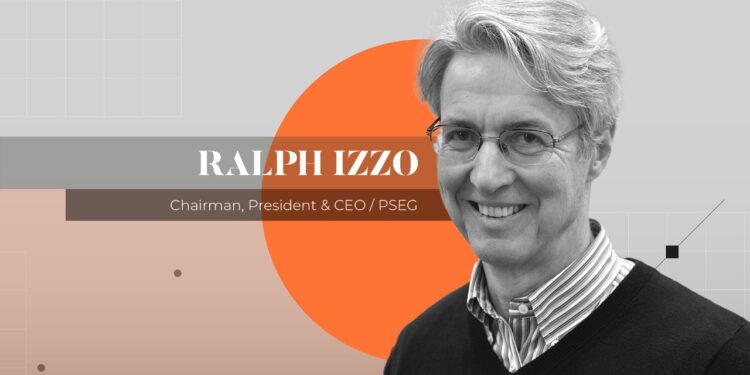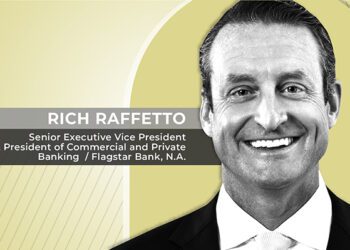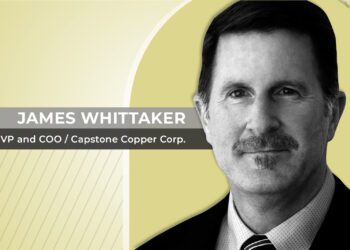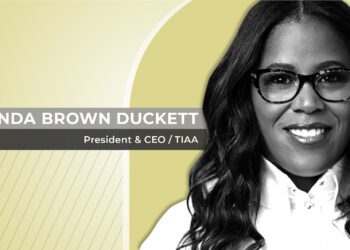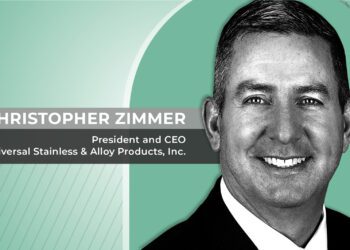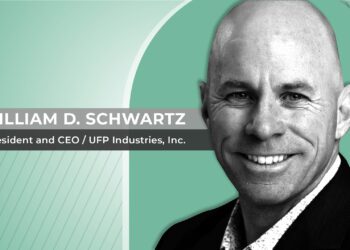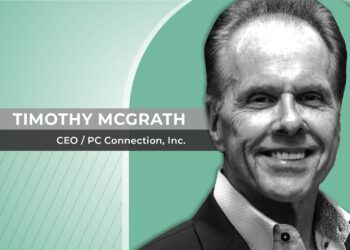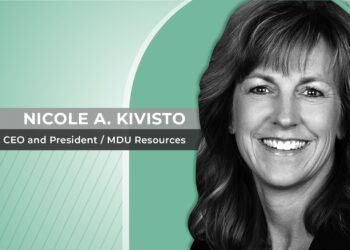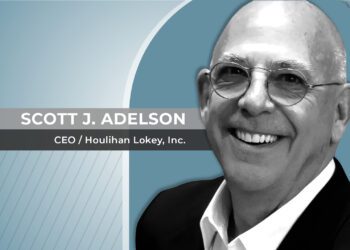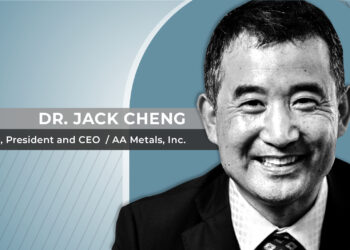With climate change and diversity and inclusion growing concerns for society, Chairman, President & CEO of PSEG, Ralph Izzo, is determined to lead a progressive kind of energy company.
Public Service Enterprise Group Inc. (PSEG) is a publicly traded diversified energy company with approximately 13,000 employees. Headquartered in Newark, N.J., PSEG’s principal operating subsidiaries are Public Service Electric and Gas Co. (PSE&G), PSEG Power and PSEG Long Island. PSEG is a Fortune 500 company included in the S&P 500 Index and has been named to the Dow Jones Sustainability Index for North America for 13 consecutive years.
When RALPH IZZO was appointed Chairman and CEO of the Public Services Enterprise Group (PSEG) in 2007, he knew he was inheriting an incredibly well-run organization, but also one that needed to modernize its infrastructure and push towards a carbon-free future. “Being from one of the original industrialized regions of the country, we had infrastructure that was 100 years old and it was no longer meeting the expectations of customers in terms of its robustness,” Izzo told CEO Magazine in an exclusive interview. “The other opportunity from my point of view was that the industry as a whole had to do something bolder than it ever had before with regards to climate change.”
“I was inheriting a well-managed and stable organization with a century of history,” Izzo recalled of his appointment. “As such, I knew that we needed to take an approach that would recognize the accomplishments PSEG had already made, but also recognize that we could be even better.”
CLEAN ENERGY
Izzo described PSEG as an energy infrastructure company increasingly motivated by the growing concerns in society regarding everything from climate change to diversity, equity, and inclusion. On the issue of climate change, PSEG has a history of being among the more progressive utility companies in America, while Izzo himself has been a proponent of clean energy since the 1980s.
“The northeast region of the country is part of something called the Regional Greenhouse Gas Initiative, a consortium of states that wanted to develop a cap and trade system for carbon emissions to show the nation that it could be done,” he explained. “We were one of the earliest participants and embraced the idea even though a wholesale power market did not overlay with that carbon market, which put us at a bit of a disadvantage. It’s our willingness and ability to demonstrate that things can be done differently than they have in the past which I believe in turn allows us to influence the industry.”
To this end, PSEG is investing billions of dollars into the green economy through both energy efficiency and an offshore wind program it is partnering on with Ørsted. Furthermore, its last remaining coal plant will shut down on June 1, and with 35 terawatt hours of energy coming from its nuclear plants and some 200 MW of solar, Izzo said that PSEG will be 98% carbon-free from a power generation point of view by the end of 2021.
“In partnership with our regulators we’ve designed a system whereby our shareholders are indifferent as to whether we install energy efficient light bulbs or new cable and new wires out on the grid,” Izzo elaborated. “We’re indifferent as to how much electricity or gas that flows through our system. We’re motivated to make infrastructure investments and if those are deemed to be worthwhile by the regulators, they go into something we call our rate base and that is the primary driver of our earnings.
“As it turns out, the U.S. in general and New Jersey in particular are so energy inefficient that you can invest in energy efficiency for less than the marginal cost of burning fuel to supply the customer. And as we don’t profit on fuel expense, we can simultaneously lower the customer bill and improve our profitability.”
THE IMPORTANCE OF DATA
The COVID-19 pandemic shook up the entire global economy in 2020 and also refocused the energy industry on ensuring amore reliable and cost-effective supply of power to people’s homes as citizens went into quarantine and business organizations doubled down on the concept of are mote workforce. Izzo believes that not only will remote work continue post-pandemic, but also the way customers consume energy will change considerably.
“Having approximately half our employees here at PSEG work remotely has worked quite well and in the long term I think that’s going to enable us and many other companies to be much more flexible,” he remarked. “In this context, what we have to realize is that customer outages at home will not merely be an inconvenience but a threat to doing business. If the home becomes the center of all activity, any interruption in the power supply will mean people can’t work.”
As a result, PSEG is rapidly embracing data analytics, both in terms of measuring internal metrics, such as equipment condition parameters involving vibrations, temperature and oil viscosity, and in monitoring consumption habits by customers to make their energy bills more affordable by detecting early declines in the performance of major appliances such as air conditioning and heating systems.
“We are a technical company that was born of an age when causation motivated your assessment of operations through engineering principles,” Izzo elaborated. “And data analytics, while it respects causation as a skillset, recognizes that causation doesn’t always tell the whole story, and that correlation helps guide predictions even better. That will be an area of intense scrutiny on our part over the next few years, making better use of data, especially when it comes to the customer.”
MODERNIZATION
A 100-year-old company must change with the times, and along with a push towards clean energy and a growing reliance on modern business tools such as data analytics, PSEG is currently in the process of replacing much of the old infrastructure both it and New Jersey residents depended on for decades. In this, strategic partnerships have been crucial for PSEG in increasing efficiencies and lowering cost. “Our gas pipes were built with technology from over 100 years ago,” Izzo explained. “Right now, we are implementing a gas system modernization program, which costs about $450 million per year where we’re replacing those very old cast iron gas pipes. In the past, it was common for us to have anywhere between 50 and 100 contractors at any one time across the state which led us to enter into strategic partnerships and reduce the number of suppliers to just nine. What we’re finding is our replacement cost per mile is going down and we’re gaining significant efficiencies in the pace and the cost that we can replace these pipes.”
In this area, too, Izzo believes that the collection and analysis of data is crucial to measuring efficiencies and success. PSEG employs a constantly evolving initiative called a balance scorecard which is refined each year to measure everything from customer satisfaction to the wellbeing of its employees. The scorecard is an explicit recognition of the fact that customers, employees, and shareholders are equally important. So, goals are set for outcomes important to each of these constituencies and progress is tracked on a continuous basis with a direct link to compensation.
“It’s very easy to run a low-cost operation, but can you run one that has a high level of customer satisfaction at the same time?” Izzo emphasized. “Can you treat employees well and at the same time ensure shareholders are earning the returns they expect? We compare our results to our own prior performance and the performance of others where that data is available. And where there’s a gap, where we’re underperforming, we analyze that gap, we collect more data. And when we’re doing well, we ask how we can do better.”
SOCIAL RESPONSIBILITY
For Izzo, PSEG’s mission to be a socially responsible company in a changing world, whether it is in the realm of combating climate change, emphasizing diversity, equity, and inclusion, or simply in terms of transparency, is every bit as important as its role as a dependable and cost-effective supplier of power—and he believes the company was way ahead of the curve on such issues.
“We were part of President Clinton’s carbon reduction efforts back in the late 90’s and I myself have been working on the climate issue since 1986 in various capacities,” he explained. “We are far ahead of our peers in terms of transparency insofar as political donations which we fully disclose. On the social front, we’ve been investing in a variety of programs. For example, we gave away millions of dollars to customers to help with the Covid response, including the donation of N-95 masks and gloves to medical facilities across New Jersey, because it was important for us to do so.
“We’ve also initiated a program whereby we’re working with social justice and environmental justice organizations on issues that affect minority communities and lower income communities, and we’ve developed an enormous jobs program to go along with our energy efficiency program to provide jobs to those demographics that are not necessarily highly skilled but can easily be trained.
“Our overall strategy and vision for the future has four components. Firstly, a future that embraces people using less energy. We all want to live a comfortable life but we would be more than happy to use less energy and pay smaller bills. Secondly, the energy they use has to be cleaner than ever before. Thirdly, the reliability and resiliency that customers have grown accustomed to is woefully inadequate. How do we improve on it? Finally, we want our people, who are increasingly diverse, to realize that this is an industry that welcomes and embraces them.”
By Paul Imison

